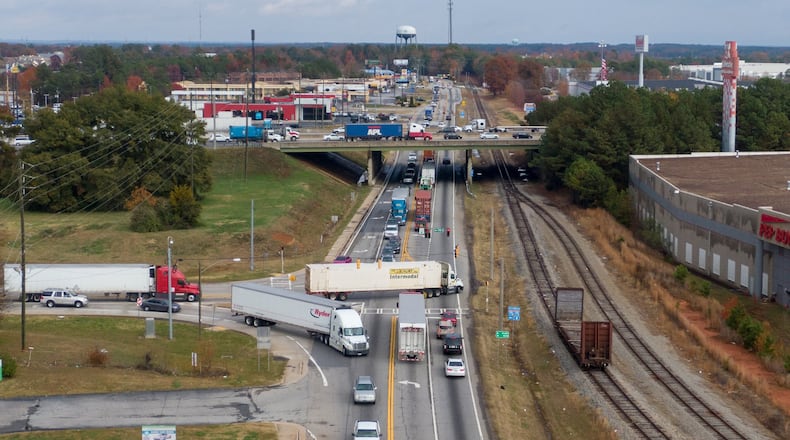It may be seven months away, but Henry County officials know they have work cut out for them before residents to agree to add a penny to their sales tax for transportation.
That is especially true after the last month’s sixth SPLOST for schools only drew 6,300 of the south metro county’s 184,000 or so registered voters.
“We need to get better messaging to the public so they can understand what is going on and the benefits of actually raising a one-cent sales tax,” Stockbridge Mayor Pro Tem Elton Alexander said. “There is not a day that goes by that someone in Henry doesn’t mention the traffic.”
Henry, like most counties in metro Atlanta, is struggling with increasing road congestion brought on by suburban sprawl, which took off in the community during the late 1990s and has clogged streets during rush hour peaks. The county, which 40 years ago had a population of around 60,000, now is home to about 250,000 residents.
Adding to that crush has been the county’s boom in the distribution center and logistics business. Over the last two decades, Henry has lured thousands of jobs and dozens of brand name retailers such as Home Depot, Luxottica and Wayfair — and the associated tractor trailers that choke roadways and create potholes.
“This is our chance to transform Henry County,” Henry Commission Chairwoman Carlotta Harrell said of the T-SPLOST. “This is something that is long overdue.”
If approved, Henry residents will pay 8 cents on the dollar to widen highways, extend streets to connect its four cities, and build new roads to relieve traffic overwhelmed by trucks. The county plans to meet with leaders in Stockbridge, McDonough, Locust Grove and Hampton to determine a project list.
Unlike the E-SPLOST, the transportation referendum will be held in November, a more traditional election timetable, county leaders said. It will be paired with municipal elections, increasing the chances of having a larger turnout.
The low turnout for the schools tax, which expects to raise about $325 million over five years beginning in 2022, was not usual, J.D. Hardin, a spokesman for Henry County Schools said. The first E-SPLOST, the only ballot measure in a referendum held in March 1997, lured around 7,500 voters. That was followed by the single referendum E-SPLOST in March 2002 and March 2007, which brought out 5,800 and 5,000 voters respectively.
An E-SPLOST held in November 2011 doubled the vote to about 15,700 ballots. SPLOST V brought out 48,200 voters in March 2016, in part because of the presidential primary also was on the ballot.
Each E-SPLOST has passed.
“Six thousand is about average,” Hardin said. “Would we like more people to come out and vote, of course. Anytime people can come out and voice their support the better.”
The Henry leaders also suggested residents may have been suffering from voter fatigue in the most recent E-SPLOST after the November 2020 presidential election and the special election in January for Georgia’s two U.S. Senate seats.
But experts said voter fatigue is not the issue some think it is. Turnout is tied more to the time of the year an election is held, what’s on the ballot and how well supporters and opponents of a referendum have spread the word about a candidate or issue.
“Turnout is all about mobilization,” said David Pena, a lecturer of political science at Clayton State University. “If everybody at that point in time spent all their resources of the presidential and special election, it is unlikely they had the resources to then go into a specific county election.”
Special elections also can suffer from changes in polling places and curtailed times for early voting during weekdays and weekends, said Amy Steigerwalt, associate chairwoman of the political science department at Georgia State University. Residents will sit out a vote if it becomes a hassle.
Voters, she said, also need to be constantly reminded about an election. It’s not as simple as issuing a press release, creating a website or holding a couple of meetings.
“Most people in the United States do not have voting as a default, as a habit,” she said, blaming that on lack of information and the ability to vote being harder than it needs to be. “Voting is more of, “Well, if I get to it’ more than this is at the top of my list.”
About the Author
Keep Reading
The Latest
Featured



